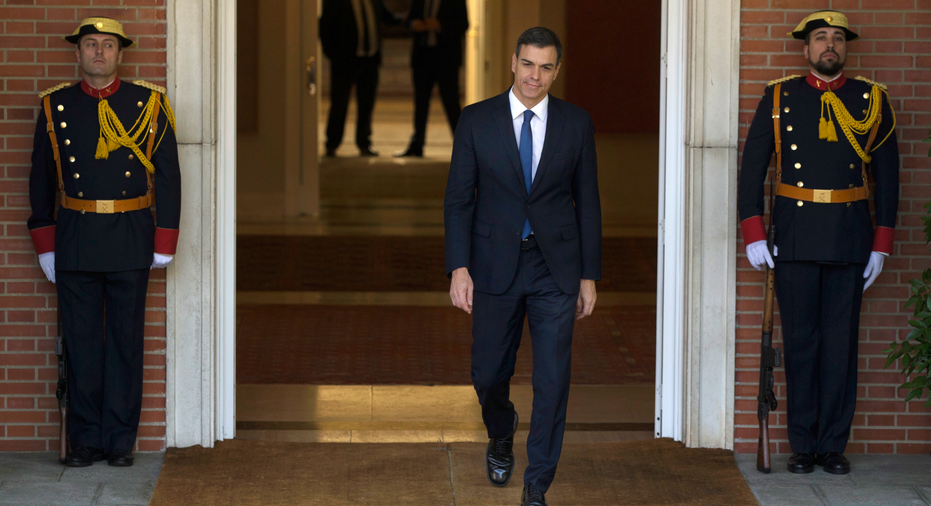Spain's ousted leader steps down as conservative party boss

BARCELONA, Spain – Spain's ousted prime minister Mariano Rajoy announced Tuesday he will step down as leader of the country's conservative Popular Party, just days after his government fell in a no-confidence vote prompted by a corruption scandal.
An emotional Rajoy, who has led the party for 15 years, told party members in Madrid that it was time to end his "journey" and hand over the leadership to someone else at a party congress later this year.
"It is the best for me and for the Popular Party, and I think for Spain as well," the 63-year-old politician said.
Lawmakers voted to oust Rajoy as prime minister last Friday following a corruption scandal involving several former members of his party. He was replaced as prime minister by Socialist leader Pedro Sanchez.
Rajoy, who had served as prime minister since 2011, predicted the new government would only bring political instability to Spain, noting that Sanchez himself had never won an election.
"The country is being governed by someone systematically rejected by Spaniards when they have been asked their opinion through the ballot boxes," he said.
Sanchez is expected to officially announce his full cabinet on Wednesday but on Tuesday the Socialist Party revealed some of the new members, including constitutional lawyer Carmen Calvo and European Parliament ex-president Josep Borrell.
Jose Luis Abalos, the party's organizational secretary, confirmed that Calvo would be Sanchez' deputy prime minister and Borrell will be Spain's new foreign minister.
Abalos told broadcaster TVE that Calvo would also head the resurrected Equality Ministry, in a nod to Spain's feminist movement. He said Maria Jesus Montero, known for putting the region of Andalusia's finances back on track, would become Spain's finance minister.
Abalos will serve as development minister, according to his office.
The choice of Borrell, a 71-year-old Catalan, was criticized by separatists in Catalonia and praised by pro-Spain lawmakers in the politically divided region.
In order to secure votes against Rajoy from Catalonia's separatists, Sanchez promised talks about the future of the wealthy northeastern region. But appointing Borrell, who is strongly opposed to Catalan independence, sends the opposite message.
German Chancellor Angela Merkel congratulated Sanchez by phone Tuesday and wished him success. According to her office, the two agreed that their countries would continue to "work closely together to strengthen Europe."
___
Geir Moulson in Berlin contributed to this report.



















